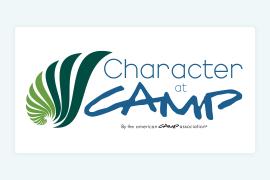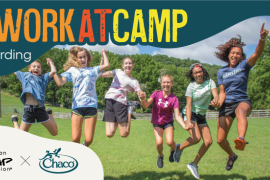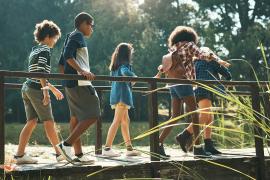My camp wasn’t in the middle of nowhere, out in the woods. Rather, it was in the city, in the middle of an urban neighborhood, row houses and all. Many of the children my camp hosted were poor, inner-city types, whose parents couldn’t afford an overnight camp. It was, like many other camps, a way to keep them off the streets and out of trouble. Considering the neighborhood we were stationed in, I’d venture to say that the need was more urgent than most. I had attended the camp years prior, and was emotionally invested in it. Below is a list of duties I had no experience performing, yet by the end of the year I had became an expert at executing.
5. Making a lesson plan
After receiving a cursory pamphlet on lesson planning, my group of counselors and I were tasked with creating a fun and educational set of lessons to be rooted in the subject of science.
After numerous attempts to perfect the curriculum, we were sincerely disappointed when our superiors informed us we had failed, miserably. Our scope wasn’t wide enough to encompass all of the ages (6-13) that were under our care. This required we make tiers of the same lessons i.e., more academic (worksheets) lessons for the older children and play-oriented lessons for the younger children. This involved a great deal of teamwork and skillful delegation to coordinate them all.
4. Dealing with disruptive Children
I tried my hardest to make the lessons engaging and fun for all students, but planning can only do so much. In school, I was subjected to a cookie-cutter approach to being disruptive–a 5-6 minute timeout.
While it's easy to fall back on "timeouts" to maintain order, I've learned it might not be what's best for the student. Discipline must be meted out on a case-by-case basis. Sometimes it’s not about misbehaving at all when, simply, the child would benefit from a different type of engagement. Encouraging this, to a point, may even pave the way for emergent play.
3. Allowing for differing learning styles
Our school system has a one size fits all formula to planning curricula. As a counselor, I was encouraged to build lesson plans that encompassed multiple learning styles. It certainly helped that I was developing plans for a science curriculum. We planned each lesson to facilitate approach from as many different angles as possible. For example, all of our lessons had a kinesthetic (physical) and logical element. The development never ceased, we were always on the lookout for children who struggled with the way information was presented. There is a need for flexibility.
2. Presenting ideas in an energetic and fun manner
It's understandable if one believes learning best occurs when children are studious and quiet. That learning can only take place when they are quiet and absorbed in their work. The truth is the opposite; Neurologist and educator Judy Willis writes:
“The truth is that when the joy and comfort are scrubbed from the classroom and replaced with homogeneity, and when spontaneity is replaced with conformity, students’ brains are distanced from effective information processing and long-term memory storage.” Willis goes on to add, “The highest-level executive thinking, making of connections, and “aha” moments are more likely to occur in an atmosphere of “exuberant discovery,” where students of all ages retain that kindergarten enthusiasm of embracing each day with the joy of learning.” Fun actually leads to engagement, and from that, learning. Summarily, if children are engaged and having fun, they're more comfortable and likely to ask questions and connect to the lessons.
1. Showing students they matter
“Above all, it is important to treat your students like people,” our Project Manager told us. It sounds so obvious, but often it goes unsung and children are ignored or shoved aside, stigmatized as “the bad one.” Treating them like they matter, that you expect good things from them, and are happy when they succeed, goes a long way. It won’t stop them from causing trouble, but it will sow the seeds of respect between the student and yourself. Then it will actually mean something to them when you ask them to do complete a task, because they know you care, that you’re not just “being mean.”
Youth counselors are instrumental in providing training and education to get these children on the right path to becoming productive citizens. The need for youth counselors is growing steadily; more and more children will need these programs to enrich their lives, and be successful.
Mordecai Hunter worked for 3 years at Calvin Summer Day Camp in Philadelphia, PA and is now a freelance writer. You can reach him at mordecaihunter922@gmail.com.




